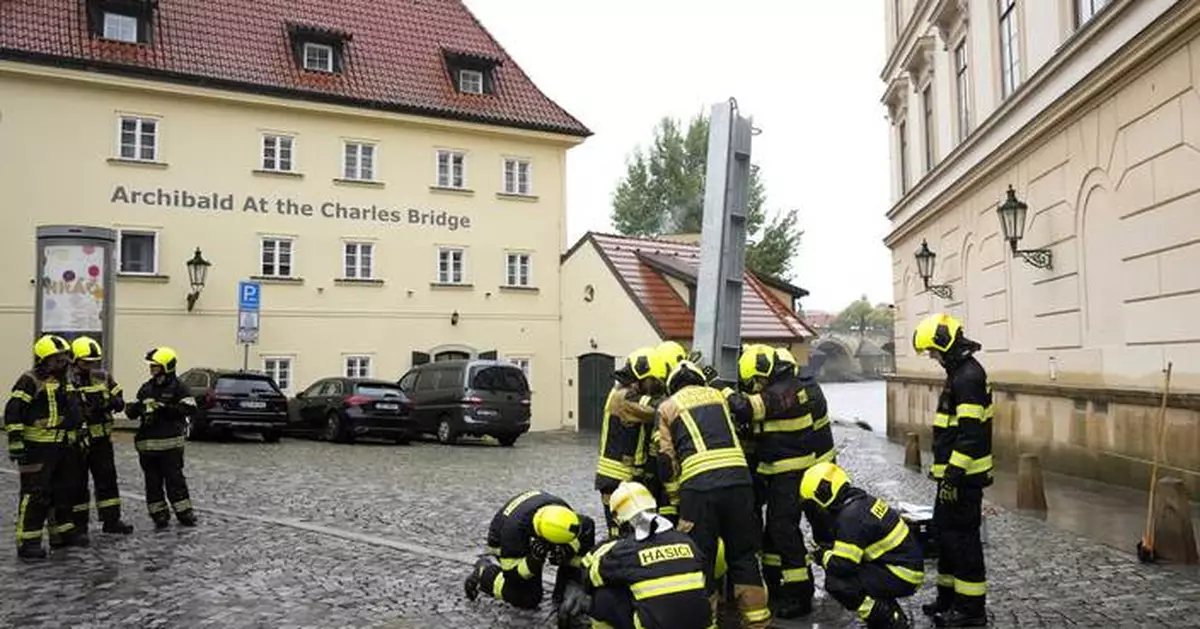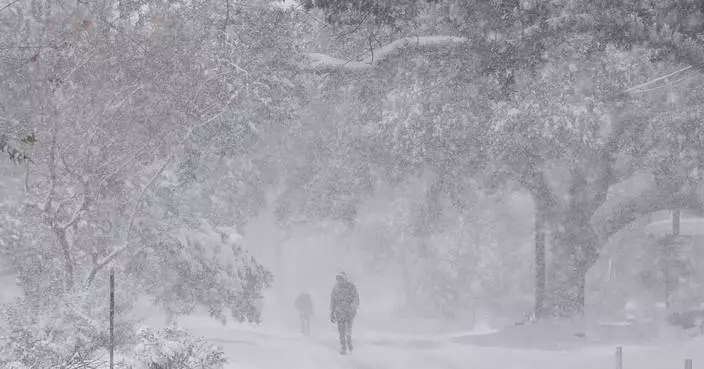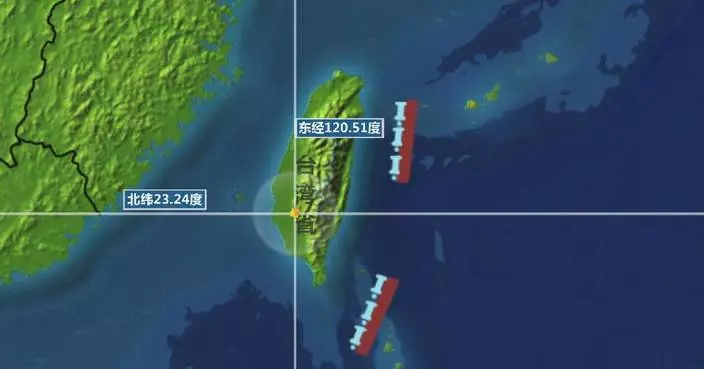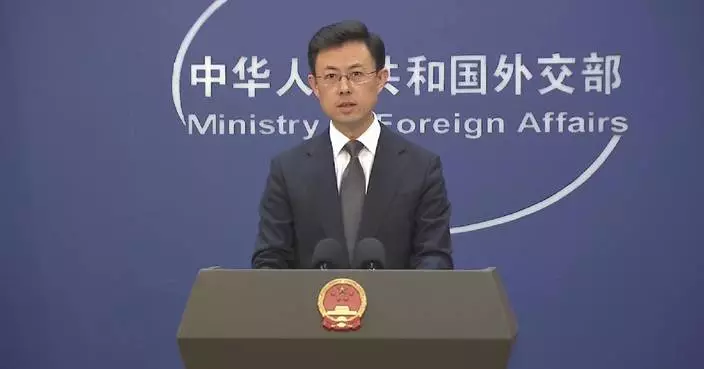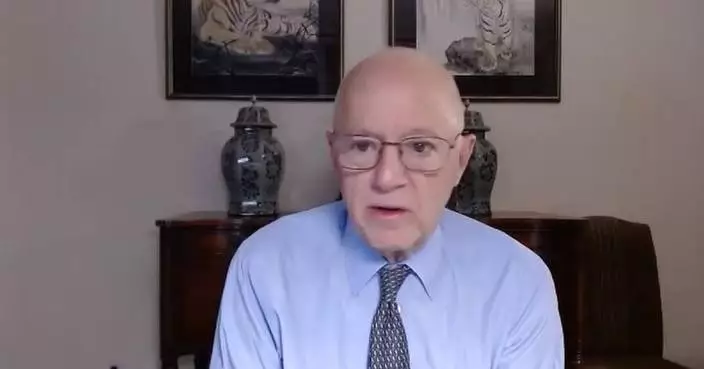PRAGUE (AP) — Central European nations braced on Friday for severe flooding forecast to hit the Czech Republic, Poland, Austria, Germany, Slovakia and Hungary over the weekend.
Czech authorities erected metal barriers or protective walls from sandbags, while water was released from dams to make space in reservoirs. Residents have been warned to get ready for possible evacuations.
Click to Gallery
Firefighters adjust parts of the anti-flood barriers in Prague, Czech Republic, Friday, Sept. 13, 2024. (AP Photo/Petr David Josek)
Firefighters adjust parts of the anti-flood barriers in Prague, Czech Republic, Friday, Sept. 13, 2024. (AP Photo/Petr David Josek)
Firefighters adjust parts of the anti-flood barriers in Prague, Czech Republic, Friday, Sept. 13, 2024. (AP Photo/Petr David Josek)
Firefighters adjust parts of the anti-flood barriers in Prague, Czech Republic, Friday, Sept. 13, 2024. (AP Photo/Petr David Josek)
Firefighters adjust parts of the anti-flood barriers in Prague, Czech Republic, Friday, Sept. 13, 2024. (AP Photo/Petr David Josek)
From left, Czech Prime Minister Petr Fiala, Czech Interior Minister Vit Rakusan and Czech Environment Minister Petr Hladik attend a news conference after the meeting of Central Crisis Staff due to the risk of floods in Prague, Czech Republic, Friday, Sept. 13, 2024. At right is Czech Interior Minister Vit Rakusan. (Vit Simanek/CTK via AP)
Czech Prime Minister Petr Fiala, left, speaks during a news conference after the meeting of Central Crisis Staff due to the risk of floods in Prague, Czech Republic, Friday, Sept. 13, 2024. At right is Czech Interior Minister Vit Rakusan. (Vit Simanek/CTK via AP)
People with umbrellas against the rain as they cross the medieval Charles Bridge in Prague, Czech Republic, Friday, Sept. 13, 2024. (AP Photo/Petr David Josek)
Firefighters adjust parts of the anti-flood barriers in Prague, Czech Republic, Friday, Sept. 13, 2024. (AP Photo/Petr David Josek)
Some public events planned for the weekend have been cancelled at the request of authorities, including soccer matches in the top two leagues.
“We have to be ready for the worst case scenarios,” Prime Minister Petr Fiala said after a meeting of his government’s central crisis committee. “A tough weekend is ahead of us.”
Meteorologists say a low pressure system from northern Italy was predicted to dump much rainfall in most parts of the Czech Republic, or Czechia, including the capital and border regions with Austria and Germany in the south, and Poland in the north.
Central Europeans are especially wary because some experts have compared the weekend forecast to devastating floods in 1997 in the region, referred to by some as the flood of the century.
Over 100 people were killed in the floods 27 years ago, including 50 in the eastern Czech Republic where large sections of land was inundated.
The biggest rainfall was predicted in the eastern half of the country, particularly in the Jeseniky mountains. The second largest city of Brno, located in eastern Czech Republic, is among places that have not had flooding protection work completed, unlike Prague.
Czechs were asked not to go to parks and woods as high winds of up to 100 kilometers (62 miles) per hour were forecast.
In Poland, Prime Minister Donald Tusk traveled on Friday to the southwestern Polish city of Wrocław where floods are forecast. Authorities appealed to residents to stock up on food and to prepare for power outages by charging power banks.
Tusk, meeting with firefighters and other emergency officials, said the forecasts were "not excessively alarming.”
“There is no reason to panic, but there is a reason to be fully mobilized,” he stressed.
The German Weather Service warned of heavy precipitation across swaths of the country, including the Alps, where heavy snowfall and strong winds are expected at higher altitudes.
The Alpine nation of Austria is also getting ready for heavy rains, and a massive cold front that is expected to bring snow to higher elevations.
The weather change arrived following a hot start to September in the region. Scientists have recorded Earth's hottest summer on record, breaking a record set just one year ago.
A hotter atmosphere, driven by human-caused climate change, can lead to more intense rainfall.
Associated Press writer Vanessa Gera in Warsaw, Poland, contributed to this report.
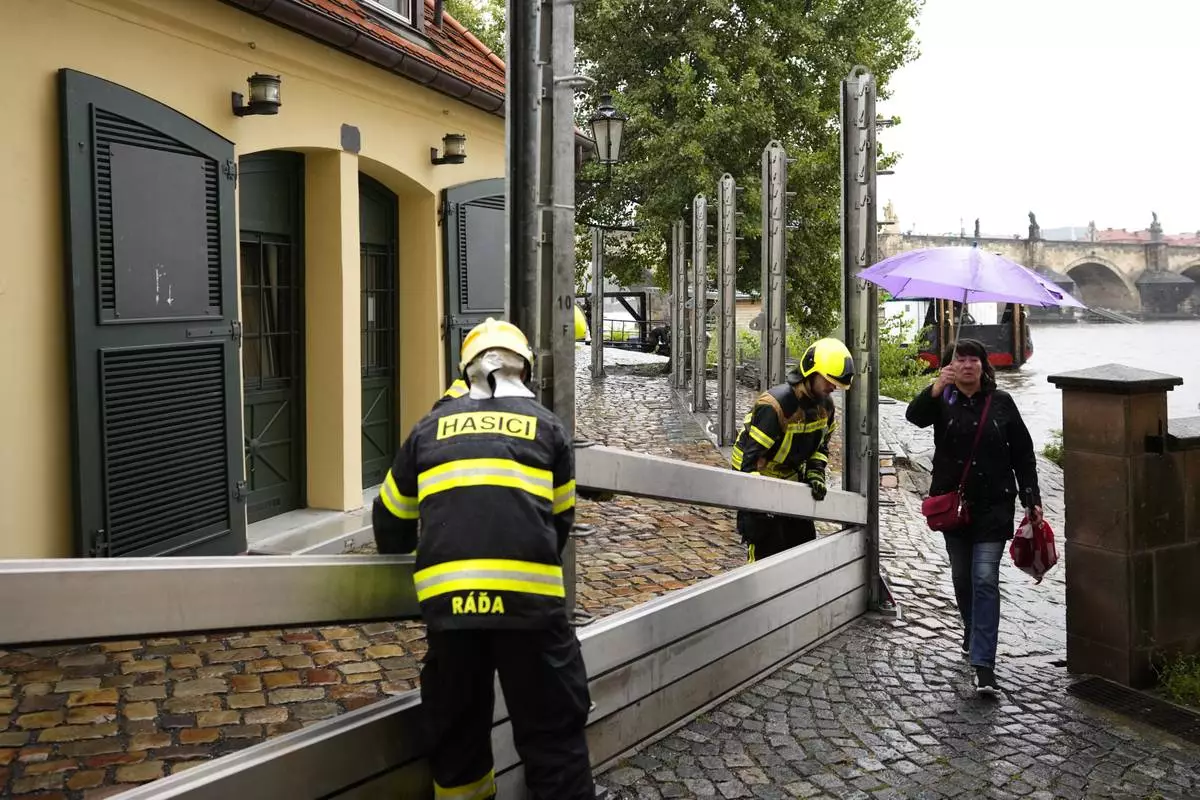
Firefighters adjust parts of the anti-flood barriers in Prague, Czech Republic, Friday, Sept. 13, 2024. (AP Photo/Petr David Josek)
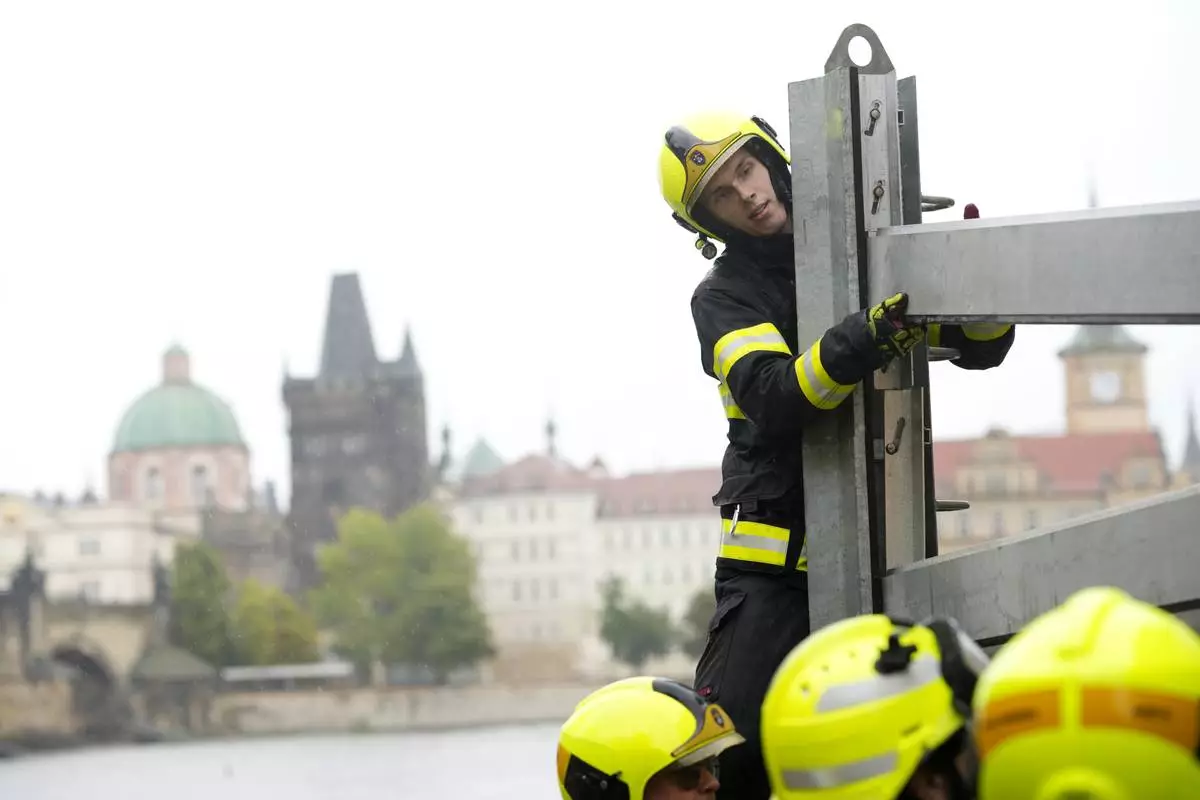
Firefighters adjust parts of the anti-flood barriers in Prague, Czech Republic, Friday, Sept. 13, 2024. (AP Photo/Petr David Josek)
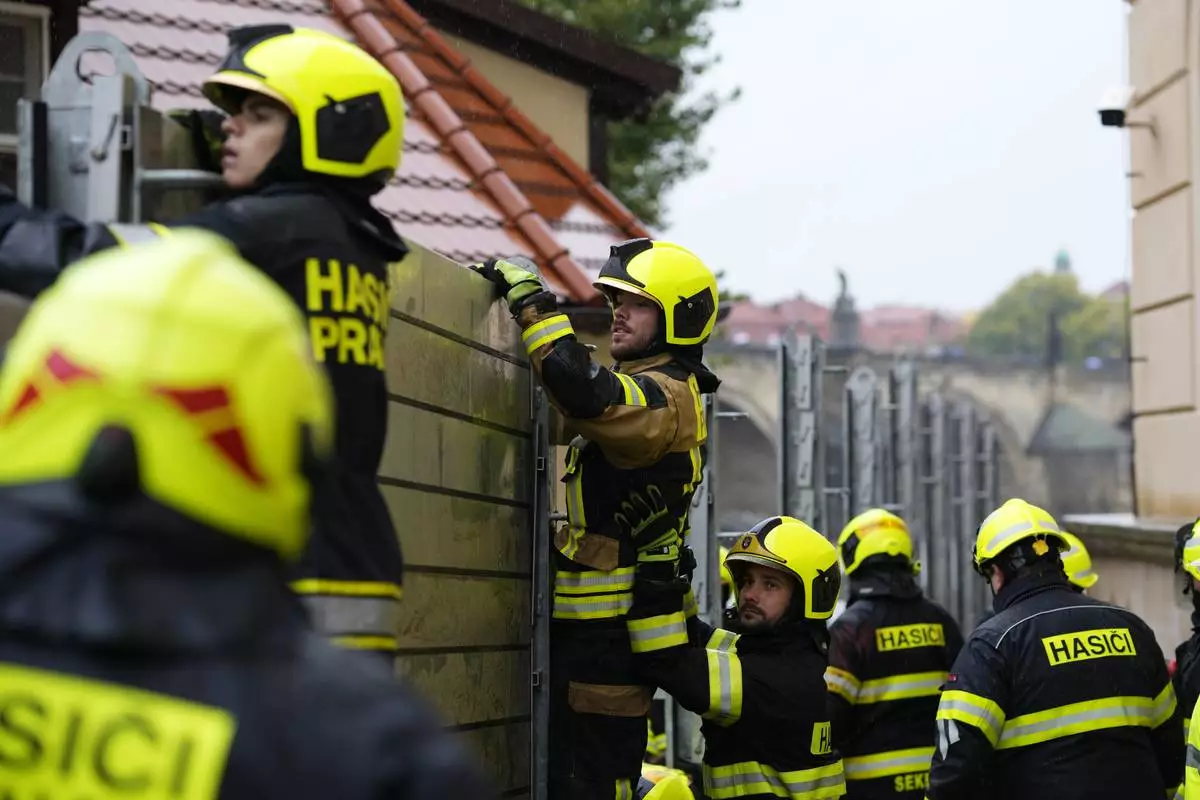
Firefighters adjust parts of the anti-flood barriers in Prague, Czech Republic, Friday, Sept. 13, 2024. (AP Photo/Petr David Josek)
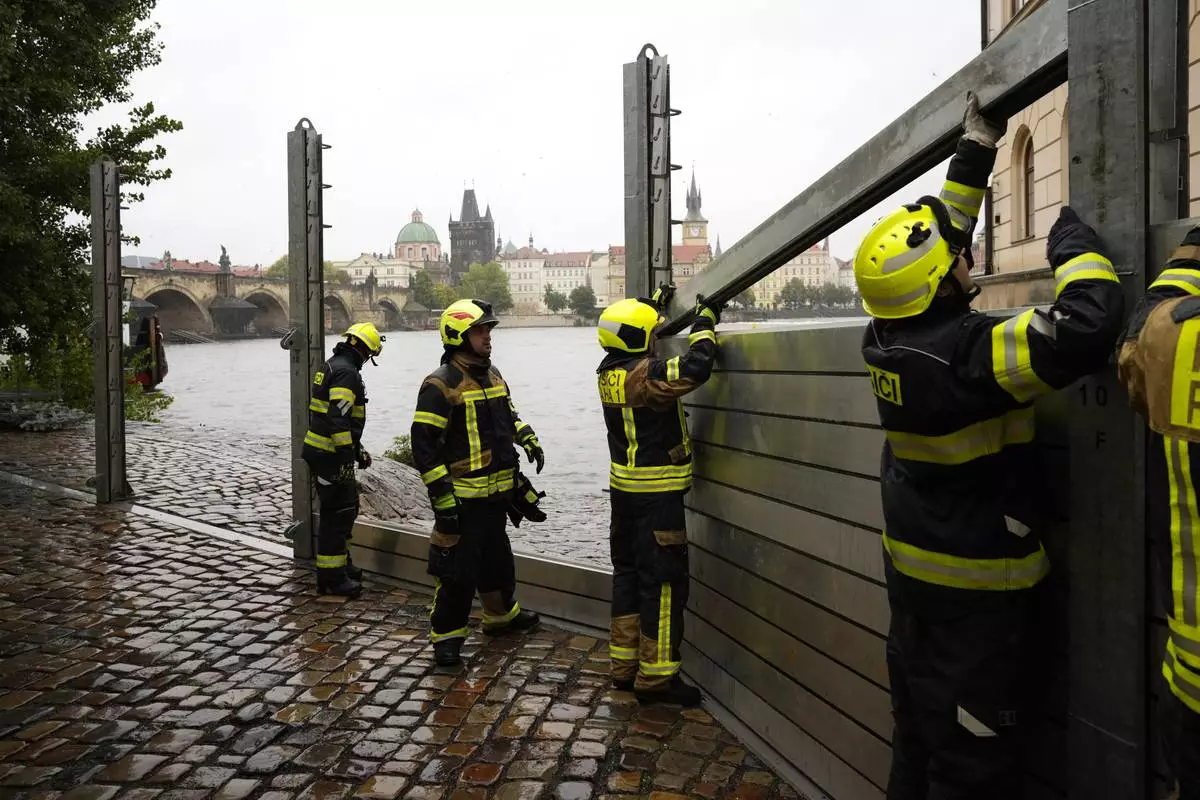
Firefighters adjust parts of the anti-flood barriers in Prague, Czech Republic, Friday, Sept. 13, 2024. (AP Photo/Petr David Josek)
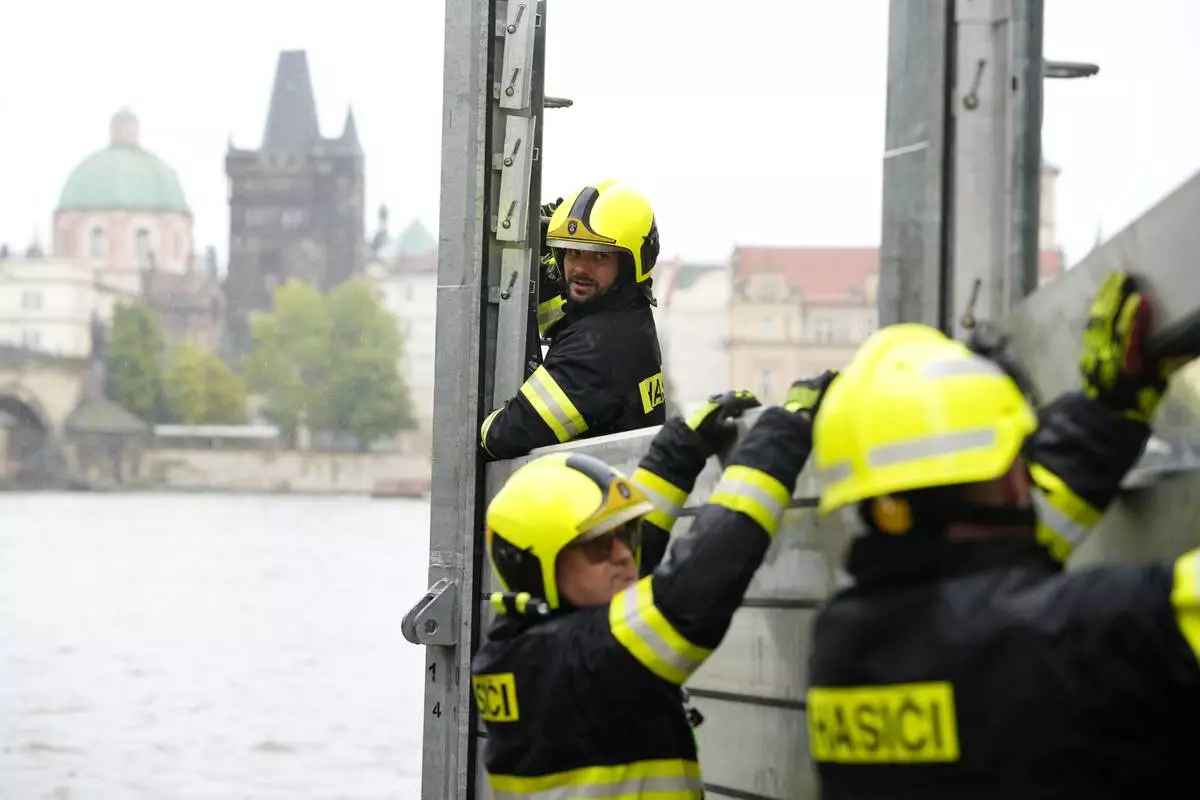
Firefighters adjust parts of the anti-flood barriers in Prague, Czech Republic, Friday, Sept. 13, 2024. (AP Photo/Petr David Josek)

From left, Czech Prime Minister Petr Fiala, Czech Interior Minister Vit Rakusan and Czech Environment Minister Petr Hladik attend a news conference after the meeting of Central Crisis Staff due to the risk of floods in Prague, Czech Republic, Friday, Sept. 13, 2024. At right is Czech Interior Minister Vit Rakusan. (Vit Simanek/CTK via AP)

Czech Prime Minister Petr Fiala, left, speaks during a news conference after the meeting of Central Crisis Staff due to the risk of floods in Prague, Czech Republic, Friday, Sept. 13, 2024. At right is Czech Interior Minister Vit Rakusan. (Vit Simanek/CTK via AP)
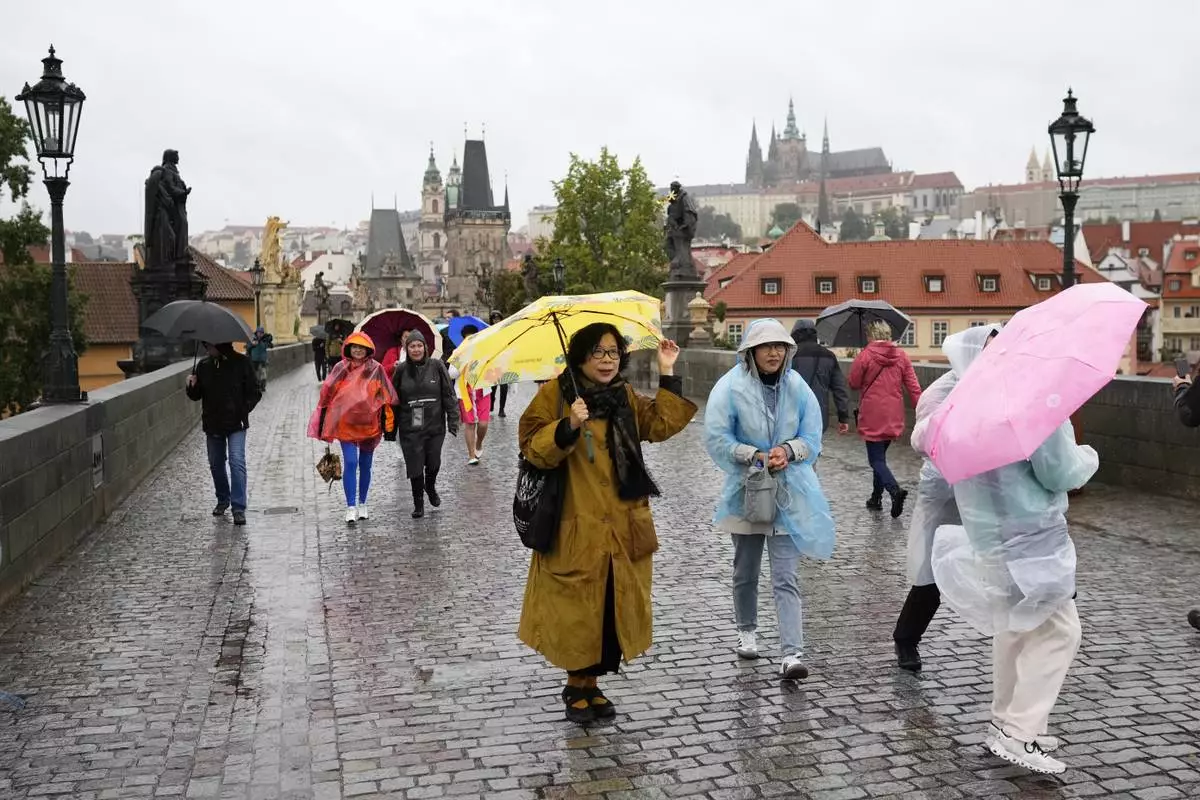
People with umbrellas against the rain as they cross the medieval Charles Bridge in Prague, Czech Republic, Friday, Sept. 13, 2024. (AP Photo/Petr David Josek)
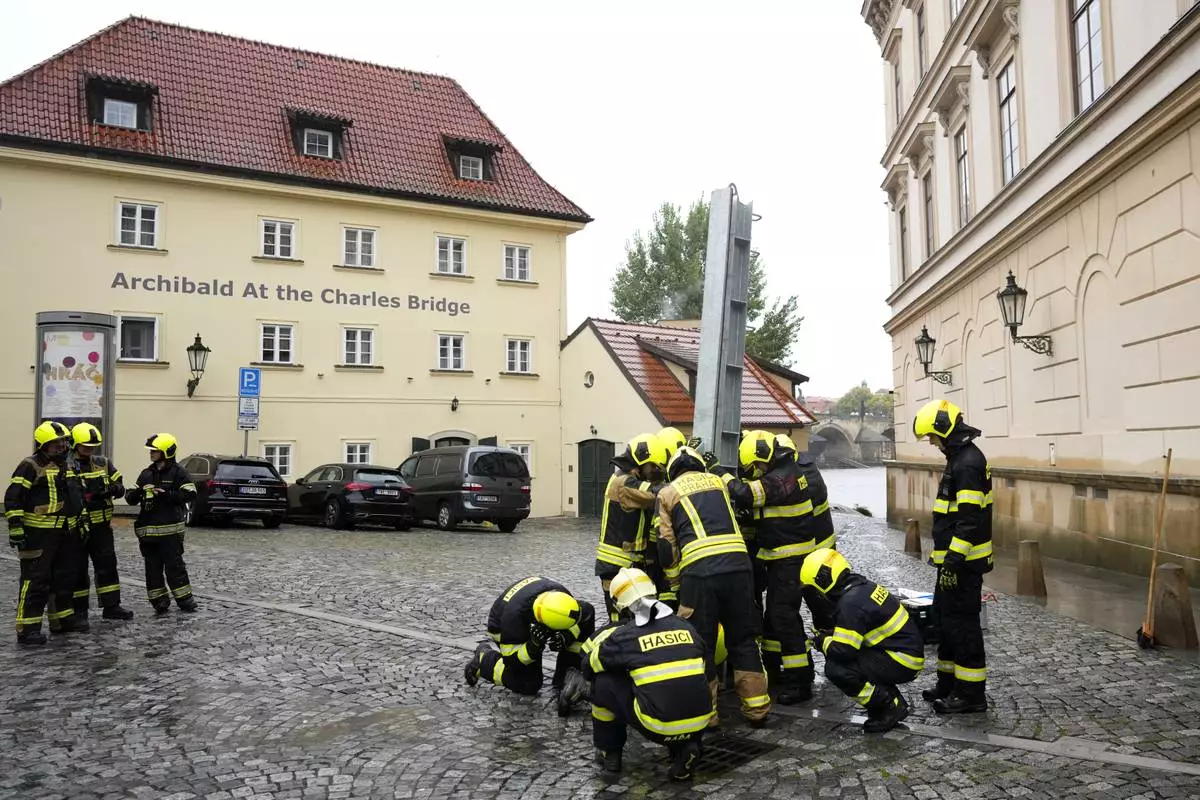
Firefighters adjust parts of the anti-flood barriers in Prague, Czech Republic, Friday, Sept. 13, 2024. (AP Photo/Petr David Josek)
WASHINGTON (AP) — Senators vetting the nomination of Pete Hegseth for defense secretary received an affidavit Tuesday from a former sister-in-law alleging that the onetime Fox News host was abusive to his second wife, to the point where she feared for her safety. Hegseth denies the allegations.
The sister-in-law, Danielle Hegseth, was formerly married to the nominee's brother, and in an affidavit obtained by The Associated Press, she said she believes that Pete Hegseth is “unfit” to run the Defense Department based on what she witnessed and heard. She said she first relayed her allegations to the FBI in December but was concerned that the information was not shared with Congress as senators consider Hegseth's nomination to lead the Pentagon.
The affidavit describes Hegseth’s treatment of his second wife, Samantha, and alleges repeat drunkenness and a domestic situation where Samantha Hegseth had a safe word to indicate if she was in danger at home. Danielle Hegseth said Samantha texted that safe word to her sometime in 2015 or 2016, which prompted her to call a third party for help.
“I have chosen to come forward publicly, at significant personal sacrifice, because I am deeply concerned by what Hegseth’s confirmation would mean for our military and our country,” she said.
An attorney for Pete Hegseth vehemently denied the allegations. Tim Parlatore said the affidavit was filled with “belated claims” by an ex-relative with “an axe to grind against the entire Hegseth family.”
“Sam has never alleged that there was any abuse, she signed court documents acknowledging that there was no abuse and recently reaffirmed the same during her FBI interview," Parlatore said in a statement. "Belated claims by Danielle Dietrich, an anti-Trump far left Democrat who is divorced from Mr. Hegseth’s brother and never got along with the Hegseth family, do nothing to change that.”
The affidavit was filed in response to a request from Sen. Jack Reed of Rhode Island, the top Democrat on the Senate Armed Services Committee, who said he was seeking her statement to gain “personal knowledge about Mr. Hegseth’s fitness to occupy this important position.”
In the affidavit, Danielle Hegseth says she believes Hegseth’s marriage to Samantha was abusive. She said Samantha in 2014 told her she once hid in her closet because she feared for her safety. She acknowledged she did “not personally witness physical or sexual abuse” by Pete Hegseth toward his wife.
“I believe what Samantha told me because what she told me is consistent with what I personally observed of Hegseth’s erratic and aggressive behavior over many years,” she said.
Neither Samantha Hegseth nor an attorney who represented her in divorce proceedings immediately responded to requests for comment. A lawyer for Danielle Hegseth noted that she wouldn't be commenting further than the affidavit.
In a statement to NBC News, which first reported on the affidavit, Samantha Hegseth said there "was no physical abuse in my marriage. This is the only further statement I will make to you, I have let you know that I am not speaking and will not speak on my marriage to Pete. Please respect this decision.”
Samantha Hegseth and Pete Hegseth both signed a Minnesota court document in 2021 during their divorce saying neither claimed to be a victim of domestic abuse.
Republican leaders said they doubted the new allegations would change the votes of support they are lining up for Hegseth. They marched ahead with the nomination Tuesday evening, taking a key procedural step needed to confirm him by week's end.
“Looks like a desperate ploy by Democrats who are being driven by the far left because they know that we have the votes to confirm,” said Sen. John Barrasso, the No. 2 GOP leader.
Asked if the new allegations changes the votes for Hegseth, he said: “No.”
Sen. John Cornyn, R-Texas, said he was aware of the reported allegations and compared the situation to the claims made against Brett Kavanaugh during his own confirmation hearing, before he was eventually confirmed as a Supreme Court justice.
“I don’t really have anything to offer,” Cornyn said. “I was involved in the Kavanaugh hearings, where people came out of the closet making all sorts of false allegations.”
Questions were raised before Hegseth’s hearing last week about the scope of the FBI background check, which some said failed to include interviews with those who had raised allegations against him. Democrats pushed for a deeper FBI review that could be more broadly shared with senators.
During the hearing, Hegseth did not directly answer yes or no to questions about his drinking, instead saying the issue was part of an orchestrated smear campaign against him.
At the time, it was left to the Trump transition team to decide how much more information to pursue and share on Hegseth.
The information in the affidavit was not relayed to the leaders of the Armed Services Committee when FBI officials briefed them earlier this month on the results of Hegseth’s background check, according to a person familiar with the contents of the briefing who was granted anonymity to discuss it.
“As I have said for months, the reports of Mr. Hegseth’s history of alleged sexual assault, alcohol abuse, and public misconduct necessitate an exhaustive background investigation," Reed said in a statement Tuesday. “I have been concerned that the background check process has been inadequate, and this affidavit confirms my fears.”
Hegseth was grilled by senators during his hearing about his behavior, including excessive drinking, extramarital affairs and allegations of sexual assault, which he has denied.
Hegseth has promised not to drink on the job and has denied a 2017 sex assault allegation but acknowledged paying the woman a settlement. He was going through a divorce at the time after having a child with a Fox News producer who became his current wife, according to court records and his social media posts.
In the affidavit, Danielle Hegseth also alleges that Pete Hegseth, while under the influence of alcohol and both were leaving a bar, repeatedly shouted “no means yes!"
“I took this to mean that, in his opinion, nonconsensual sex is ok,” Danielle Hegseth said in the affidavit.
AP reporters Eric Tucker and Lolita C. Baldor contributed from Washington.

Defense Secretary nominee Pete Hegseth arrives before President-elect Donald Trump at a service at St. John's Church, Monday, Jan. 20, 2025, in Washington, ahead of the 60th Presidential Inauguration. (AP Photo/Evan Vucci)

Pete Hegseth, President-elect Donald Trump's choice to be Defense secretary, appears before the Senate Armed Services Committee for his confirmation hearing, at the Capitol in Washington, Tuesday, Jan. 14, 2025. (AP Photo/Alex Brandon)











